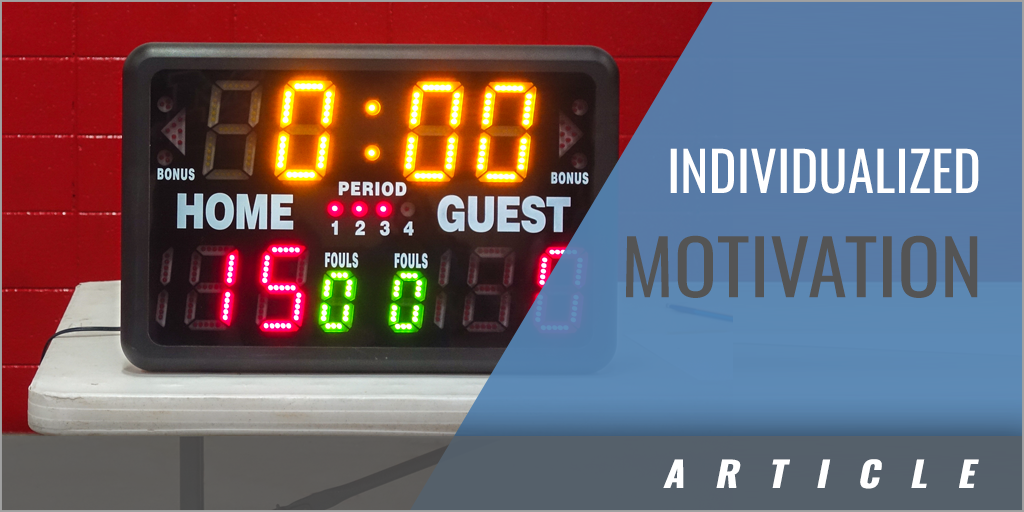|
By: Mike Chapman Originally Published in: Wrestling Tough Provided by: Human Kinetics "Motivation comes from within each individual," said Mike Ditka, an All-Pro football player and the Super Bowl coach of the Chicago Bears. "It's a personal thing. It's pride, guts, desire, whatever you want to call it; some people have it in their bellies, and some don't." "I knew early on that I wanted to be an Olympic champion, and I avoided things that would hurt me or burn me out on the sport," said John Smith. "I kept myself motivated by always looking ahead and working to improve." Dan Gable used a unique form of visualization to motivate himself when he was still active as a competitor. "When I'd get tired and want to stop, I'd wonder what my next opponent was doing," said Gable. "I wondered if he was still working out. I tried to visualize him. When I could see him working out, I'd start pushing myself. When I could see him in the shower, I'd push myself harder." For others, it's fear, which can manifest itself in various ways - the fear of looking inept, the fear of letting others down, the fear of simply not measuring up to the task at hand. "Fear of failure is what fuels me, keeps me on edge and sharp. I'm not as good when I'm comfortable," said Alex Rodriguez, one of baseball's brightest stars for 22 years. That fear helped him to smash 696 home runs, good for fourth place on the all-time home run list by the time he retired in 2016. Mark Schultz was one of the greatest wrestlers in American history. At the University of Oklahoma, he won three NCAA titles, defeating superb wrestlers from Iowa in the finals each year. He won the 180.5-pound class at the Los Angeles Olympics in 1984, competing with such intensity that he snapped the arm of his first-round foe, the heavily favored wrestler from Turkey. Schultz followed up his 1984 gold medal by winning world titles in both 1985 and 1987. Yet he wasn't particularly interested in wrestling as a young man. He was a superb gymnast and saw a bright future in that sport. His motivation came from a brawl with his older brother, Dave, also one of the finest wrestlers in U.S. history. Mark had also been studying a martial art called Tang Soo Do. When they tangled, Mark found that his superior physical strength was easily nullified by Dave's wrestling technique and skills. He wound up taking more punishment than he dealt out and quickly decided that he wanted to learn to wrestle so that he could better defend himself, not just against his brother but also against others who might challenge him. "Thinking I was ready to show my brother, Dave, how superior I had become from my four months of training, I got in a fight with him on the front lawn of our house in Ashland, Oregon," said Mark. "I took a swing. He ducked and shot in for a takedown. He got the mount and punched my face into bloody submission. I was humiliated and slept in the car that night. The next day, I quit Tang Soo Do and went out for the wrestling team". Sometimes the spark to win comes from sources that go far deeper than mere athletics. According to the 2005 hit movie Cinderella Man, heavyweight boxer James Braddock (portrayed by Russell Crowe) was motivated by one of the most basic of all desires: to feed his wife and children. Problems with fragile hands had ruined Braddock's once-promising career, and he was forced to work on the docks and beg for money. Braddock even wound up on relief during the Great Depression of the 1930s. Given a second chance to fight, he was desperate to feed his near-starving family. When he won three bouts in a row and was awarded a title shot, the press asked him why he was fighting. "To buy milk," he responded. Fueled primarily by the motivation to take care of his family, he then proceeded to win the world championship by beating Max Baer in one of the biggest upsets in boxing history! In the 1950s, Dan Hodge used wrestling as a way out of his painful home life. Because of a strange set of circumstances, his parents abandoned him as a young boy, and Hodge grew up with an abusive grandparent who liked to smack him around, often striking him with a cane. He learned how to defend himself through wrestling and then discovered that he was capable of pinning anyone, at just about any time. He was never even taken down during his college career, won three NCAA championships for the University of Oklahoma, and was twice named the outstanding wrestler of the tournament. He is the only amateur wrestler ever to appear on the cover of Sports Illustrated (April 1, 1957). Hodge also won a national heavyweight Golden Gloves boxing title and has since become one of the top icons of wrestling. The sport's most prestigious award for college wrestling, the Dan Hodge Trophy, is presented each year to the top wrestler in the nation. "Wrestling has been wonderful to me, and I love it," he said. "It's hard to imagine what my life would have been like without it." And he admits that learning how to protect himself was one of his prime motivating factors. Bill Smith's motivation was to win a letter and impress the girls in his 10th-grade class at Thomas Jefferson High School in Council Bluffs, Iowa. He wanted to try basketball but heard that the wrestling team had an opening at 103 pounds. "All I had to do was show up, make weight, and go on the mat, and I'd get a letter," he says today with a sly grin. "That sounded pretty darn good to me. I didn't know I was going to end up spending my whole life with the darn sport." But he did, winning two NCAA titles at Iowa State Teachers College while going undefeated in his collegiate career. In 1952, he journeyed to Helsinki, Finland, and was the only American wrestler to win a gold medal in the Olympics, competing at 160.5 pounds. He entered coaching soon after and led his high school teams to state titles in California and Illinois. He has taken American squads all around the world. He is a member of every hall of fame available to him and is a wrestling legend - all because he wanted to impress the girls as a youngster back in Council Bluffs. Lee Kemp's motivation was to forget the pain of being cut from the basketball team in ninth grade. He recalled feeling sorry for himself as he walked past the wrestling practice room and heard shouts and laughter. He looked in and was hooked. "They seemed to be having a good time in there," he said decades later. "I wanted to be a part of something like that, so I decided to go out for wrestling." Before he was through, he had won three NCAA titles for the University of Wisconsin and three world championships. President Carter's decision to boycott the 1980 Olympics cost Kemp his shot at an Olympic gold medal, but he has carried the values he learned from the sport with him throughout his life, forging successful business careers on several different levels. "Wrestling has positively impacted my life in many ways, but perhaps the one singular thing that I gained from wrestling that stands out the most is that wrestling provided me the opportunity to learn mental toughness!" said Kemp. "A person's mental toughness is what allows them to demand of themselves anything and everything necessary to achieve the desired goal, or basically speaking - people who are mentally tough get the job done!" |






